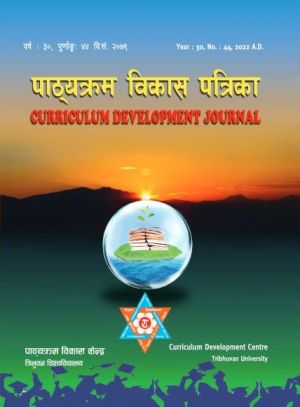Wetland-based Tourism and Livelihoods Strategies in the Pokhara Valley, Nepal
DOI:
https://doi.org/10.3126/cdj.v30i44.54983Keywords:
Pokhara Valley, sustainability, ecotourism, Livelihoods, wetlandsAbstract
The aim of this study is to assess the current status of tourism and associated livelihood strategies around the Ramsar-listed Lake Cluster of Pokhara Valley in Gandaki Province, Nepal. The study utilizes a mixed research approach, including field observation, semi-structured questionnaires, Key Informants Interview (KII), and Focus Group Discussion (FGD). In addition, published scientific papers and relevant reports were reviewed to assess tourism and livelihood strategies in the area. The findings of the study revealed that locals engage in various livelihood activities, including tourism, business, agriculture, government and non-government jobs, among others. However, while wetlands-based tourism is a significant livelihood option in the study area, there is a need to identify more income- generating opportunities related to wetlands, as highlighted by the FGD. The study also found a positive and significant relationship between livelihood capitals arising from the wetlands and household livelihood level. The COVID-19 pandemic has severely impacted the livelihoods of the tourism-dependent community, particularly those in poor and disadvantaged groups. The study noted that the extent of the pandemic’s impact differs in core urban areas and neighboring settlements around the study area. Therefore, the study suggests that policymakers and planners must develop plans, policies, and strategies that promote the tourism sector and involve local communities in decision-making processes and tourism implementation, taking into consideration the global pandemic situation. Agriculture is the primary livelihood strategy for people living near the Lake Cluster of Pokhara Valley, but it can lead to natural resource stress if not managed properly. The study suggests that tourism, particularly eco-tourism-based activities, could be the backbone for the livelihood services of the local population in the Pokhara Metropolitan City. However, to ensure the sustainability of ecotourism, there must be an integrated development and conservation strategy based on a strong public-private partnership.
Downloads
Downloads
Published
How to Cite
Issue
Section
License
© Curriculum Development Centre, Tribhuvan University

